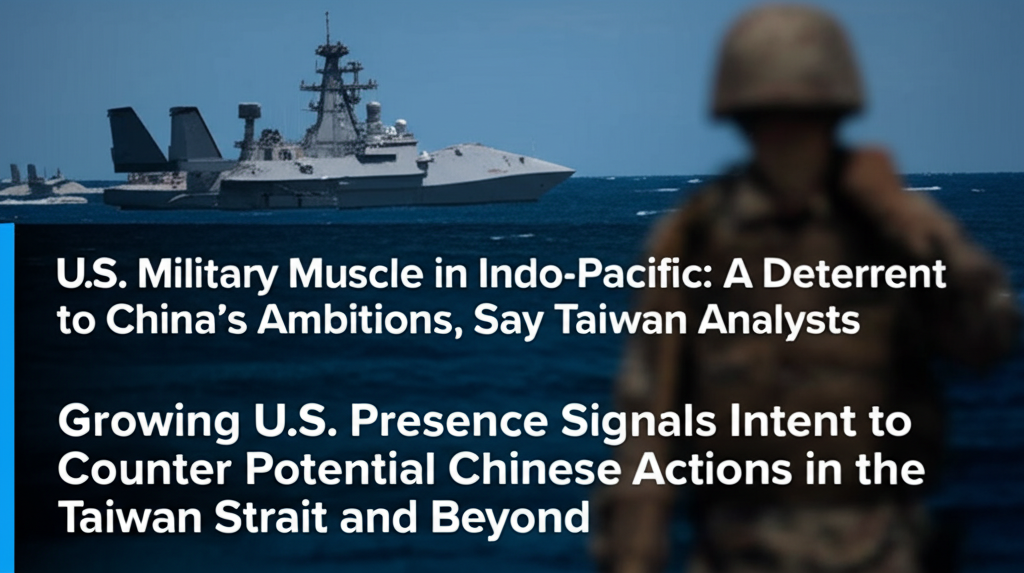U.S. Military Muscle in Indo-Pacific: A Deterrent to China's Ambitions, Say Taiwan Analysts
Growing U.S. Presence Signals Intent to Counter Potential Chinese Actions in the Taiwan Strait and Beyond

Taipei, April 5 – Recent military activities by the United States in the Indo-Pacific region are strategically aimed at deterring China, according to analysts from a Taiwanese military-backed think tank speaking to CNA.
The U.S. military's exercises in the Indo-Pacific, particularly in recent years, are clearly directed at China, stated Shu Hsiao-huang (舒孝煌), an associate research fellow at the Institute for National Defense and Security Research (INDSR), a Taipei-based think tank supported by Taiwan's Ministry of National Defense.
The United States has developed new military operational concepts in response to China's military expansion and potential actions in the Indo-Pacific, such as the Marine's Expeditionary Advanced Base Operations (EABO), he explained. According to the Marine Corps website, EABO involves deploying naval expeditionary forces from strategic locations to deny sea access, support sea control, and enable fleet sustainment within potentially contested maritime areas.
Shu highlighted that in addition to the U.S. forces stationed in Japan, deployments in South Korea have also seen a shift in focus, with the aim of countering China's growing influence.
These developments demonstrate that the U.S. strategic deployment is concentrated on addressing "potential threats from China" and potential People's Liberation Army's actions in the Taiwan Strait, and the East and South China seas, he added.
Shu's comments came shortly after U.S. Defense Secretary Pete Hegseth emphasized the Pentagon's efforts to "reestablish deterrence" in the Indo-Pacific region while strengthening its cooperation with allies, during visits to Japan and the Philippines last week.
The Washington Post reported in late March that a secret internal guidance memo signed by Hegseth prioritized deterring a Chinese takeover of Taiwan.
Su Tzu-yun (蘇紫雲), director of INDSR's division of defense strategy and resources, told CNA that U.S. President Donald Trump, upon returning to office in January, has placed less emphasis on Europe and concentrated American resources in the Indo-Pacific region.
The U.S. military is "preparing for potential Chinese maneuvers in 2027," Su argued, further stressing that Taiwan must strengthen its own defense capabilities to "offset" the PLA's military advantage.
Su referenced warnings from some American officials that China aims to be militarily capable of taking Taiwan by force by 2027, although this timeframe has not been officially confirmed by Chinese officials. Beijing maintains its stance of not renouncing the use of force against Taiwan, while simultaneously stating its desire for "peaceful unification."
